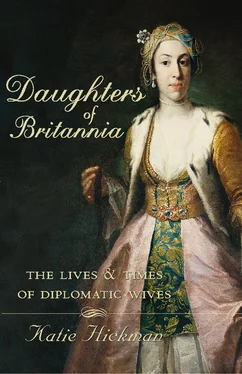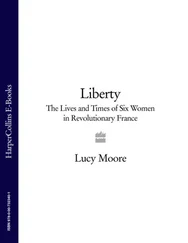Many women, especially those with young families, found, like Felicity Wakefield, that their first impressions were dominated by purely practical considerations. In the harsher and more remote postings, shortages of light and water, and weird, if not downright dangerous electrical systems were commonplace. For Catherine Young, who arrived in Syria for the first time in 1983, it was the even more basic expedient of buying food for her family’s breakfast the next day.
I thought, oh my goodness, the children are going to school, I must go and get a few things. I went in to one of the shops and it looked like a grocer’s shop and there I got some sugar. As for tea? No, no tea. Coffee? No; no coffee. Jam? No jam. Butter? The same. I had to go into four different shops to get enough for breakfast. And I came back and I was absolutely desperate. I thought, I’m going to spend my life doing this – how am I going to manage?
The first few glimpses of a new and unknown country could evoke powerful feelings. Loneliness and homesickness were commonplace, but these were often mingled with other, darker emotions. Angela Caccia struggled to come to terms with the effects of the physical landscape itself. Bolivia was a beautiful country, but its beauty had a disturbing quality to it. Nature, she observed, ‘was prodigal here, contemptuous, aloof’. At midday the sun was so strong that even half an hour in it would burn the baby’s cheeks to blisters, and yet at night they ‘would huddle by the fire while frost fell outside’. Strangest of all, though, was the effect of altitude (La Paz is 11,000 feet above sea level) and the extraordinary mountain light. ‘The air was so clear, the light so pure, it seemed almost to have sparks in it, like fluorescence in sea water. On some days the blueness of the sky had a dazzling intensity; on others it was white, as though the colour had gone into a range of radiance beyond human sight.’ Despite this beauty, or perhaps because of it, during her first few weeks Angela felt miserable and isolated, surrounded by people ‘whose languages and ways of thought we saw no hope of understanding’. And at first she was afraid, too: ‘afraid … of these strange, different people, of the stories of violence, death, and brutality … I was afraid of the Indians, the men in the buses who smelt so strongly of dirty clothes, drink and excrement.’ 5
Her experience is echoed by that of Masha Williams, whose first impressions of Baghdad in 1947 were of a ‘violent, cruel world’. Although she was fascinated by it strangeness and its mystery, she was a little frightened too. ‘I was afraid of the Arabs,’ she confessed. ‘Socially we met them rarely, our time being taken up by the British, but it was a frightening world outside our British circle. In the streets – anonymous, faceless, shapeless women draped in black and the thin-lipped men who stared brazenly from under their head cloths at my bare arms and swollen figure.’ 6
It came as a shock to realize that these feelings were sometimes reciprocated. In Peking during the Cultural Revolution Sheila Whitney remembers the ‘anti-imperialist’ marches, specifically directed against foreigners, which took place every few months or so, during which the Red Guards would throw paint on cars in the British mission compound and smash their flower pots. ‘We used to watch it, fascinated, really. I felt sorry for the Chinese, because they all had to do what the Red Guards told them.’
Other less drastic forms of culture shock could work both ways as well. When Mary Sheil visited the Shah’s harem she was amused to find that not one of his ladies could be convinced that European women undressed at night before they went to sleep. ‘Was it true,’ she was asked, ‘we put on a long white dress to pass the night in?’ When Maureen Tweedy arrived in Seoul she, too, found the people friendly, but puzzled by Europeans and their ways. ‘We had to learn many things in our new post; to say Western and not European in deference to the Americans; to say Asian and not Asiatic; to remember that when a servant giggled on being reprimanded it was a sign of embarrassment and not of impertinence.’ 7 While blowing one’s nose in public was frowned upon, spitting was perfectly acceptable, and to be thought old was a compliment. On her arrival Maureen was met by a group of journalists, and their questions brought home to her how unknown and far away Britain was to Koreans. Why do English girls wear dark clothes? Why does the sun not shine in Britain? What do English boys say to English girls? What is a deb (this was in the late 1950s)? Why do the English not have a national costume like the Scots? How well did she know the Queen and how often did she go and see her? Was it true that the English are such bad cooks they can only live on fish and chips?
The style in which a diplomatic wife first arrived in a new posting varied enormously according both to the country and to her husband’s diplomatic status in it. When Maureen Tweedy’s husband was posted to Kuwait in 1950 it was still only a little-known sea port on the edge of the desert. There was no airport and no one to welcome them, so they landed, unheralded, on a strip of beaten sand ‘under the supercilious gaze of a couple of camels’. 8 Arriving in Tripoli in the late eighteenth century, Miss Tully found that great crowds of people had gathered at the docks for a good view of the strange new arrivals. The Bey’s chief officers, ‘splendidly arrayed in the fashion of the east’ in flowing robes of satin, velvet and costly furs, had been sent to meet them. But the majority, she noted with revulsion, ‘were miserable beings whose only covering was a piece of dark brown homespun cotton’. 9
In the grander embassies arrivals were very different occasions. Although there was no public entrance or procession for the Elgins when they arrived in Constantinople in 1779 (as there had been for the Winchilseas in 1661), their reception was still designed to reflect the richness and magnificence of the Ottoman court. No fewer than ninety attendants were sent to the British embassy, each one carrying a round tray covered with beautiful flowers and quantities of exotic fruit; ‘they placed the flowers and fruit on each side of our hall and made two rows from top to bottom,’ wrote the Countess of Elgin to her mother. ‘The Great Man [the Grand Vizier] then came into the room followed by eight trays with five pieces of fine Berlin china on each, filled with different sorts of preserves and painted handkerchiefs over each. Four trays for me and four for Elgin.’ 10
Similarly in 1664, when Ann Fanshawe and her husband, Richard, the new ambassador, first arrived in Spain, they were greeted with all the pomp and circumstance that the Spanish court could muster. Her view of Spain, perhaps not unnaturally, was profoundly influenced by her reception. The Fanshawes had sailed to Cadiz, where a barge, sumptuously covered with crimson damask and gold fringes, Persian carpets underfoot, was sent to meet them. As they disembarked from their own ship all the other vessels in the harbour saluted them with volleys of guns and cannons. At the dockside a great crowd of the town’s ‘quality’ was waiting to honour them, and the streets were thronged with common folk eager to watch them go by. The King’s representative, Don Juan de la Cueva, the Duke of Albuquerque and twice a Grandee of Spain, came to greet them personally. With a graceful flourish, Lady Fanshawe remembered with a little flutter, he deposited his plumed hat on the ground before her. ‘This, with my family and life, I lay at your Excellency’s feet,’ he said.
From Cadiz they travelled in state all the way to Madrid. In addition to the Spanish courtiers and their entourages who now accompanied them, the Fanshawes had their own extensive suite, including gentle-men-of-the-horse, three pages, a chief butler, a chief cook, two undercooks, two grooms, two footmen, a governess for their children, a housekeeper, a waiting gentlewoman, a servant to the young gentlewoman, a chambermaid and a washmaid, three postilions, three coachmen and three grooms.
Читать дальше












